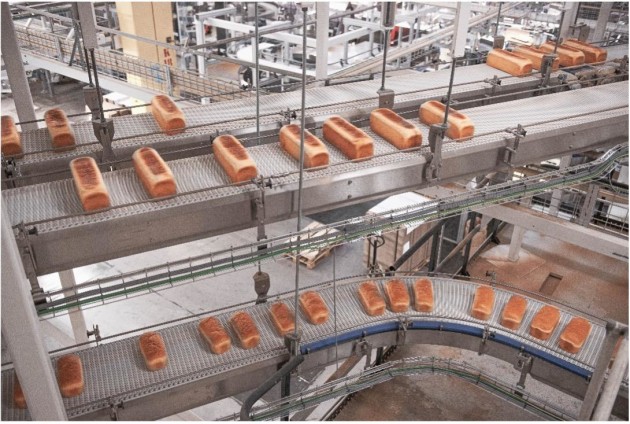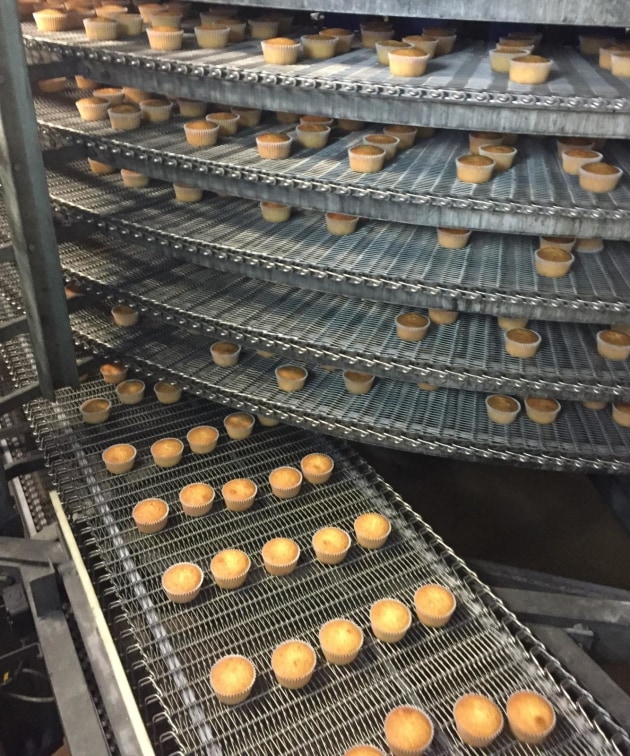FlexCAM supplies some of the world’s leading conveyor systems to many of Australia’s food and beverage manufacturers and has recently moved to larger premises as it scales manufacturing its own design solutions.
Melbourne based manufacturer and supplier of conveyor-based systems, FlexCAM, recently moved into larger premises in Melbourne’s Southeast.
An increase in system design and assembly were the key drivers for the move, following business growth throughout Australia, primarily across the food and pharmaceutical sectors. These sectors have always been a key market for FlexCAM, with both FlexLink brand product and in house designed solutions.

This includes the FlexLink range of SS slat chain and modular belt conveyors, as well as the company’s range of in-house designed solutions.
Traditionally, FlexCAMS’s strength has been in the FlexLink style of aluminium and stainless-steel conveyors.
Engineering director Shaun Mansell says, “Our markets were generally centred around tissue, food and beverage, pharmaceutical and the like, with the main focus on end-of-line packaging. We wanted to build on this with our own range of solutions.”
In 2018, FlexCAM took over the distributorship of FlexLink products in Australia and New Zealand.
Since then, the company says it has built on the extensive experience of its engineering team and developed its own range of solutions to complement the FlexLink range.
This includes modular belt, homogenous belt, wire belt, spiral and slat chain conveyors for industries such as baked goods (e.g., breads, biscuits), cheese manufacturing, wine and brewing, fruit processing, and meat handling.
Building on the philosophy of “simple solutions to complex problems”, the focus has been to provide high value solutions across a range of alternate conveyor systems, sourced and partnered with the best brands in the business.
The key criteria were high hygiene levels, low maintenance, easy cleaning, and long system life. Forming partnerships and signing licence agreements with world leading suppliers such as Intralox, Ambaflex and Twentebelt were critical in FlexCAM’s long-term strategy.
Our relationship with FlexLink is based on product quality and the solutions they offer. FlexLink are the world leaders in modular conveyor systems.
Sales director Brian Gilmore says, “We wanted to build on this by partnering with likeminded suppliers of other conveyor related components.”
FlexCAM managing director Steve Alcorn says the company’s focus and commitment is on delivering high end quality products.
“We’ve developed a range of solutions that are positioned at the top end of the market for customers that have high expectations for quality systems from their suppliers.
“Ease of maintenance, tool less belt removal, and easy cleaning, combined with realistic pricing are key to our competitiveness. We supply products to an industry that cries out for reliable, high throughput, flexible, low input systems. They don’t want to be maintaining or cleaning conveyors, they want to be using them,” Alcorn says.
High Value, Flexible Design
Alcorn says an example of this is the company’s project with global specialists to design a spiral conditioning conveyor with no internal drum, making the company the only Australian manufacturer to do so. FlexCAM offers this leading-edge design across the various available plastic, stainless steel, and hybrid belts for its spiral conveyor systems. Utilising the three belt technologies enables the application of these systems in coolrooms, freezers and ovens. Temperature ranges are from -40C to 300C.

Following FlexCAMS’s design principals of hygiene, ease of maintenance, and competitive pricing, it decided to base its offering on a drumless spiral.
“The use of Side Drive technology enables us to design a range of solutions that a traditional drum spiral simply cannot achieve.
“We can design ‘low in and high out’ as well as ‘low in and low out’ systems, removing the need for decline conveyors and allowing packaging equipment to be positioned closer to the spiral outfeed, which ensures product stays at the optimum temperature,” Alcorn says.
Drum-free systems also provide increased cooling opportunities for FlexCAM’s customers, decreasing the amount of time they need to stabilise the product.
Hygienic Design
High quality producers need high quality production solutions that allow them to focus on product quality.
“The core range of FlexLink conveyors, supplemented with specialist product from industry leaders such as Intralox, Ambaflex, SEW, and Nord, puts us in the unique position to offer optimal solutions in the most challenging environments,” Alcorn says.
The key to FlexCAM
With a strong engineering and project management team, the company offers a wide range of industry specific solutions. This might be simple corner change parts for different products on a bottling conveyor through to telescopic retractable conveyors for tray loading.
“We design everything in 3D in close consultation with the customer to ensure they get thebest outcome for their investment. We also offer customers specialist knowledge in production flow and line efficiency,” Alcorn says.
For FlexCAM, it means the company can guarantee the entire process is balanced for minimal down time and consistent throughput while maximising the customer’s return on investment.








